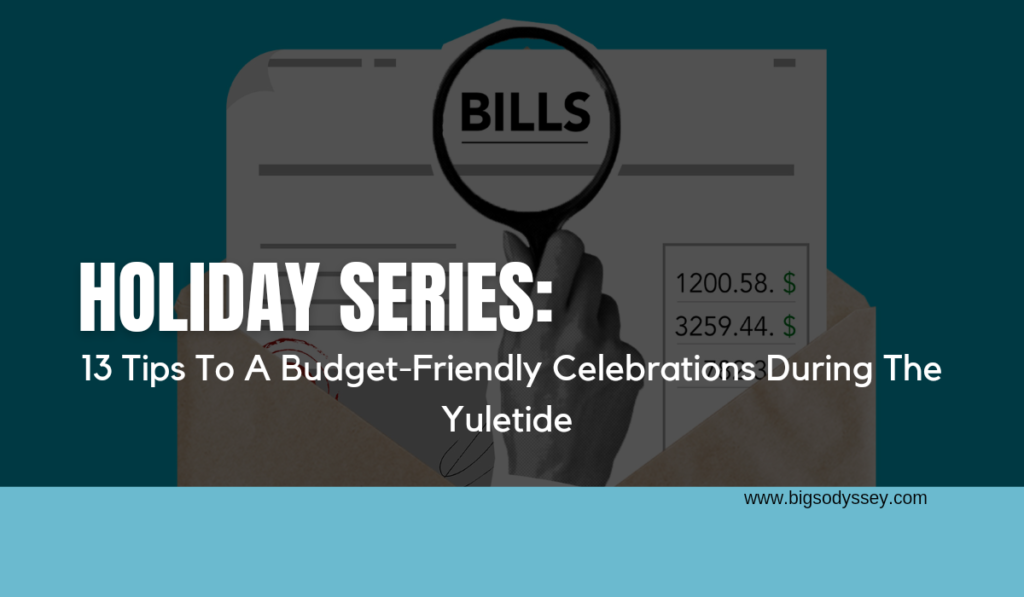With the responsibilities that comes with the festive seasons, it is of utmost importance to create and stick to a budget to avoid indebtedness and other financial stress before, during and after the celebrations.
A budget is a financial document used to measure and manage the income and expenditures for a given period.
With a budget, there’s the possibility of having a fiscal deficit during the holidays. This demands proper planning and adopting the right discipline or practices to stick to a practical budget.
Having financial stress can affect productivity and inevitably tilt the work-life balance to the negative.
Steps To Having A Budget that Sticks
1. Get a template that works. You can create your personal template or make use of templates from budgeting apps for proper organisation of your budget. You can also begin with a sketch and transfer details to an organised template.
2. Identify and Prioritise needs. In creating a budget, you can identify needs and place them in an order of priority with the most pressing need at the top. This can be categorised as fixed and variable expenses.
3. Take note of your percentages as you allocate funds. You can adopt the 50-30-20 rule. Where essential expenses have 50%, variable expenses have 30% and savings have 20% of the income allocation.
4. Always keep receipts to avoid repeating bill payments and difficulties with confirming payments.
5. Plan for extra expenses. They are a constant during the holiday season.
6. Place recurring and fixed expenses on automatic payment or as default on your budget template.
7. Actively look out for promo packages and commodities as they seems to exist more during the festive season.
8. Having a treat is not a luxury, therefore plan for it.
9. Set financial goals for saving and paying off debts.
10. Review and adjust your budget according to its applicability before, during and after the designated time.
11. Do not plan your budget on irregular income that may come from side hustle or bonuses.
12. Save towards one-time expenses like gifts for the festive season, vacations, membership fees and rents.
13. Incase of deficit budget or debts, you can plan to pay off the largest payments first.
Conclusion
Without prior knowledge on how to create a budget or with a desire to avoid being overwhelmed with financial responsibilities and stress during the holidays, you can use the tips above as a guide.

